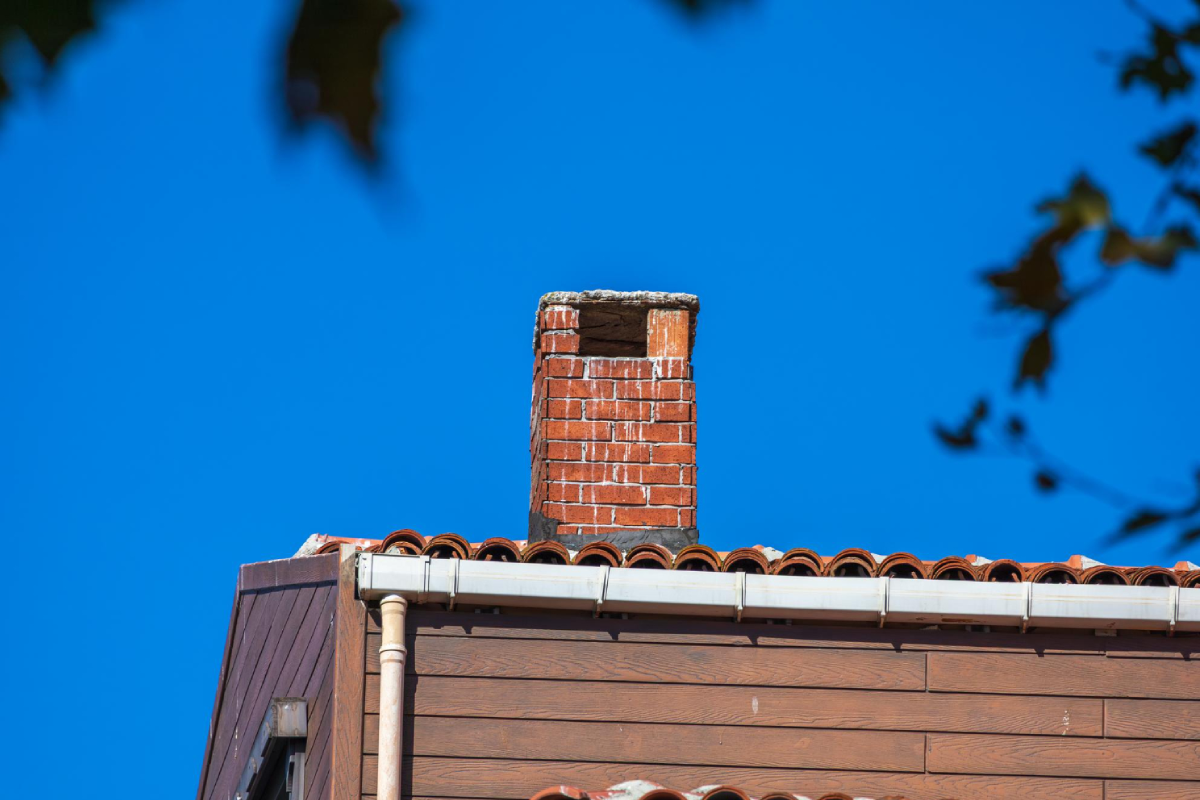Chimneys are among the least considered aspects of a house. They silently purify the air indoors by removing smoke, gases, and fumes. However, a chimney that develops damage can easily pose a threat to the safety of the residents.
Cracks, leaks, or blockages can result in fire hazards, ineffective heating, and exposure to carbon monoxide. Spotting the initial symptoms that your chimney requires professional repair can help you save on expensive future damage.
In this blog, we will take you through the red flags, inspection procedures, frequent repair requirements, and when to hire chimney repair experts.
What You Will Learn

- Why chimney maintenance is essential
- Common signs of chimney damage
- How the weather affects chimney health
- The role of chimney inspections
- Types of professional chimney repair services
- FAQs about chimney repair
- Why choosing experts ensures long-lasting safety.
Why Chimney Maintenance Is Essential
An efficient chimney provides efficient indoor air and heating. Regular maintenance keeps structures from falling apart, water leaks and fire hazards. If you don’t take care of your system on a regular basis, soot, creosote, and cracks will build up and make it weaker. If you don’t take care of your chimney, it will make your home less energy efficient, which may cost you more on your energy bills.
Common Signs of Chimney Damage
By understanding the warning signs, you can do something before the problems escalate. Some clear indicators include:
- When you see gaps, crumbling bricks, or loose mortar, it is a signal that moisture has found its way to the chimney.
- Water stains or leaks within the fireplace or chimney wall typically indicate missing or broken flashing.
- A white powdery coating on chimney bricks is an indication that water is evaporating through masonry.
- Cracks or lost caps allow rain, snow, and animals to enter the chimney.
- Musty odors, particularly during the summer, are an indication of water leaks and creosote.
- When smoke is entering your room instead of escaping through the window, it indicates that something is either blocked or structurally incorrect.
If you notice any of the above signs, it’s best to call professional roof chimney repair services in NJ to handle the situation.
How the Weather Affects Chimney Health
The weather exposes chimneys to the outdoor elements throughout the year. Freezing and thawing during cold weather enlarges cracks. Intensive rain and snow cause water to creep into masonry. Flashing or caps can be loosened by wind or storms. All these effects deteriorate the stability of the chimney and pose a risk of collapse with time.
The Role of Chimney Inspections
Professional inspections reveal the hidden issues before they can become critical. Certified inspectors employ tools and cameras to examine the flue, the liner, the crown, and the masonry.
Inspections are usually divided into three levels:
- Level 1: Basic home inspection or annual check of homes due to modifications in heating systems has been observed.
- Level 2: These are necessary when a home is sold, the type of fuel is changed, or a natural disaster has occurred.
- Level 3: Detailed examination, including stripping away the parts of the chimney exposed to damage.
A proper inspection ensures safety, compliance with building codes, and peace of mind.
Types of Professional Chimney Repair Services
- Masonry Repair and Repointing: They will fix the mortar and bricks that are falling apart.
- Flue Relining: Installing a new liner to improve draft and prevent carbon monoxide leaks.
- Crown and Cap Repair: The chimney’s crown is sealed to prevent moisture and debris from seeping in.
- Chimney Flashing Replacement: Repair of the roof-chimney seal to prevent leaks.
- Waterproofing Treatments: Coating surfaces to withstand moisture.
Roof chimney repair experts in NJ will ensure that all repairs meet safety standards and extend the chimney’s lifespan.
Why Choosing Experts Ensures Long-Lasting Safety
Chimneys are not only very comfortable, but they are also very significant in the security of your home. Ignoring minor issues can result in hazardous situations such as fire or carbon monoxide. By hiring professionals for chimney cleaning and repair, you will ensure that your home remains safe, energy-efficient, and in perfect condition.
FAQs
Q1: How risky is chimney water damage?
A1: Very risky. Water damage weakens the brickwork, fosters mold growth, and can damage ceilings and walls. If left unaddressed, it can even cause your chimney to collapse. A damaged liner might also allow dangerous gases, like carbon monoxide, to leak inside your home.
Q2: Do all chimneys eventually need repairs?
A2: Yes. All chimneys require upkeep or repair after years of service due to their exposure to weather, aging, and constant heating. Regular inspections can help prevent major repairs by catching minor issues early.
Q3: Can animals or debris cause damage in the chimney?
A3: Definitely, birds, squirrels, and raccoons often build nests in uncapped chimneys. Their nests, along with leaves or debris, can block airflow, increase the chance of fire, and cause smoke to back up into your home. Putting on or fixing a chimney cap helps prevent this.
Conclusion
Your chimney works continuously to keep your house in a safe and comfortable condition. Understanding how to recognize the first signs of damage saves you from costly and potentially dangerous situations. The signs may be as clear as cracks or as unclear as bad fireplace operation. Chimneys may get weakened by weather changes, and neglected repairs can be restored through professional services.
So, when you detect signs of damage in or around your chimney, only rely on the professionals. Contact Top Pro Construction LLC. to get quality and professional chimney service at your convenience. Our team of professionals offers quality roof chimney repair services in NJ that will ensure that your home is safe for many years to come.
